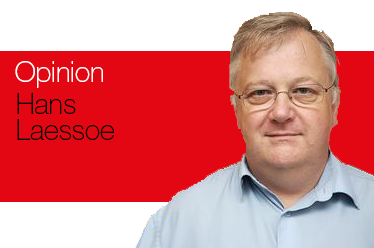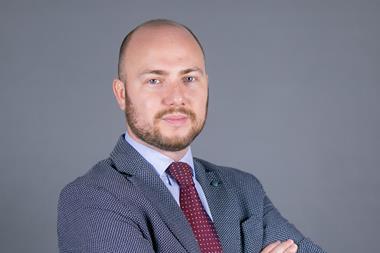Starting the year with a number of projects underway - the three year strategic plan and proposals to improve relationships with brokers - AIRMIC is finishing 2005 ahead of expectations, according to chairman Peter Berring.
Among the important achievements of the year cited by Berring are the 'first time ever' publication of a three year programme, the building of four key subject steering groups and industry focus group, work on broker transparency and contract certainty and the partnership process.
Berring continues as chairman until the next AIRMIC conference in June 2006, and he comments: "Next year, we will be working to ensure that we continue to meet our objectives, and I am pretty confident that we will do so."
Next year promises to be different from 2005 and a challenging one for risk managers, according to AIRMIC executive director, David Gamble. Increasing awareness of natural catastrophes, upheavals in the insurance market and the potential advent of avian flu mean that it will not be uneventful.
HIGHLIGHTS OF 2005
LONG TERM STRATEGY
Led by then chairman Andrew Cornish, the AIRMIC executive committee had an away day in Brighton to consider the long-term strategy for the organisation, which was then presented to members at the annual conference in June.
A key theme of the plan is for AIRMIC to work via relationships with its partner organisations and other risk management groups. In addition, AIRMIC is forming alliances with organisations in other fields over specific topics, for example in developing workplace rehabilitation.
Ten companies agreed partnerships with AIRMIC, which will enable the association to expand its activities, especially in research, product development and in training and representation, including assistance for those involved with risk management in small and medium sized business.
These partnerships have already borne fruit. At the time they were announced in February, executive director David Gamble said that AIRMIC would be looking to sponsor projects which would offer practical benefits to risk managers. One of the first products of this cooperation has been a study of finite risk reinsurance by Shirley Beglinger. Another has been a series of breakfast seminars that have attracted an excellent attendance.
The Risk Federation is the fruit of AIRMIC's relationship with the UK's two other risk management organisations: the public sector group ALARM and the Institute of Risk Management, and with the Business Continuity Institute. This joint risk network will be able to speak on broader risk issues that go beyond the particular interests of each association. Its first topic for collaboration is the risk of a flu pandemic.
INSURANCE MARKET PRACTICE - TRANSPARENCY AND CONTRACT CERTAINTY
AIRMIC is monitoring the new business models introduced by brokers following the accusations of unfair practices by the New York attorney general Eliot Spitzer, having vigorously expressed its members' concerns about the way brokers are remunerated and lack of transparency.
The association organised roadshows in London, Manchester and Edinburgh so that members could hear the views of the Financial Services authority (FSA), brokers and insurers on the subject. With small and medium sized companies in mind, AIRMIC has published a list of questions which insurance buyers can ask their brokers on the subject of remuneration, which has been downloaded several thousand times to date.
AIRMIC also held roadshows for members in Glasgow, Birmingham and Manchester on the subject of contract certainty - the currently unsatisfactory production of insurance. Immediate past AIRMIC chairman, Andrew Cornish, is taking part in a high-level steering group made up of representatives from the FSA and the market. This group is overseeing plans for the improvements that the FSA had stated it wants to see by the end of 2006. Peter Berring describes this involvement as 'a serious endorsement of AIRMIC's strength.'
More than 100 AIRMIC members responded to a survey conducted by Ernst & Young on contract certainty. The vast majority (90%) believe that contract certainty will be good for their organisations and 80% said they did not believe it would affect their ability to have bespoke wordings.
REHABILITATION
Throughout the year, AIRMIC has continued its campaign to increase the use of medical and vocational rehabilitation at work, beginning with a joint initiative with the Confederation of British Industry (CBI). A practical guide for risk managers and line managers on how to use rehabilitation was launched at the annual conference in June, and, in November, AIRMIC joined the CBI and solicitors Hugh James for a successful seminar on rehabilitation.
SOLVENT SCHEMES OF ARRANGEMENT
Reflecting members' concerns, AIRMIC created a task force to investigate solvent schemes of arrangement, and met with the FSA to express members' views that they did not necessarily protect the interests of policy-holders, especially in the case of late developing claims.
ANNUAL CONFERENCE
The annual conference took place this year in Brighton with the theme 'Progress through Partnership', reflecting AIRMIC's strategic direction.
Keynote speakers were CBI director-general Sir Digby Jones, Peter Montagnon, head of investment affairs at the Association of British Insurers, journalist and commentator Andrew Neil, and Michael Mainelli, who works with the consultancy Z/Yen.
Workshop topics included risk management standards, international communication of risk management, work rehabilitation, directors' and officers' liability, multi-national employee benefits, insurance in the railway industry and a view of the future of the insurance market.
ANNUAL LECTURE
AIRMIC demonstrated a degree of prescience in its choice of annual lecturer, Lord Coe. Former world record runner and head of the London Olympic bid committee, Lord Coe spoke about the bid and risks connected with it that the committee needs to manage in putting together the proposal, and managing the long-term impact on the local community. Only three months later on July 6 came the announcement that London had won the bid.
PRORIM PROGRESS
The first module of Prorim, the European risk management education project, in which AIRMIC is involved, was unveiled as a pilot at the Forum of the Federation of European Risk Management Associations (FERMA) in October in Lisbon. Four other modules and an introduction are to follow in English by the end of the year, while versions in French, German and Italian will be available by March 2006. The additional modules cover strategy, sales and marketing, finance and business continuity. The pilot, which is funded by the European Union Leonardo project, will be complete by October 2006, after which it can be released in a commercial version.
TERRORISM
A range of speakers from Government, police, loss adjustment and risk management spoke at a half day seminar on terrorism in April, hosted jointly by AIRMIC and Chartered Institute of Loss Adjusters (CILA). All agreed on the need for businesses to be prepared for terrorist risks, at the same time as they rejected the more cataclysmic scenarios described in parts of the press. Fortunately, despite the proximity of the AIRMIC office to one of the terrorist bombs in July, no one was directly affected, but it emphasised the need for business continuity planning.
INFLUENZA PANDEMIC
As concern grew about the threat of avian flu and an influenza pandemic, AIRMIC decided to act as a centre for members to exchange information.
PEOPLE
AIRMIC was saddened by the death of Roger Miller, its former executive director and editor of the AIRMIC in-house magazine, and later created the Roger Miller Award to recognise the highest standard in risk management writing.
Member Michael Lewis, group risk director EMI, was named Strategic Risk Risk Manager of the Year 2005.


















